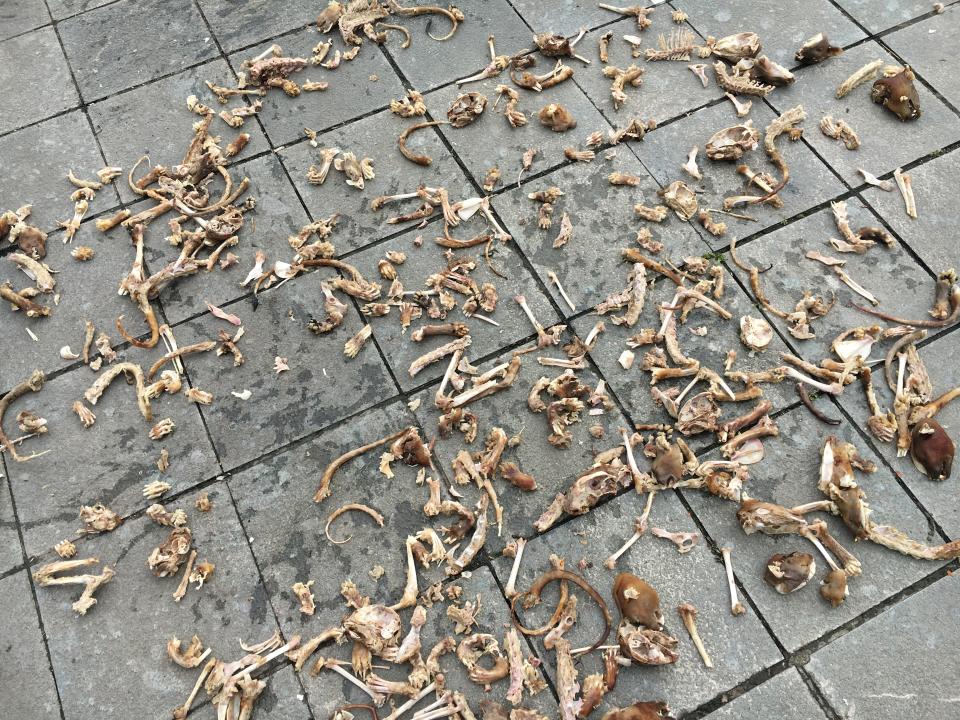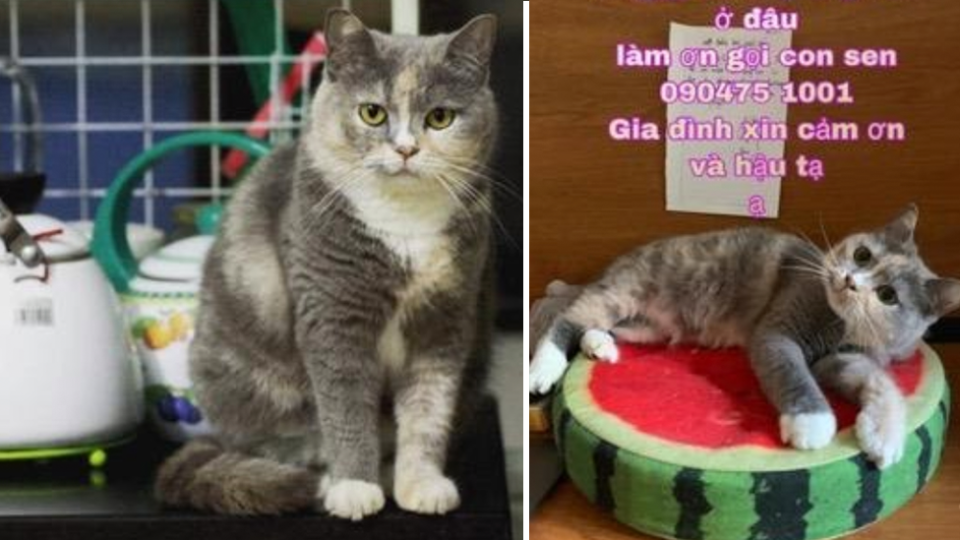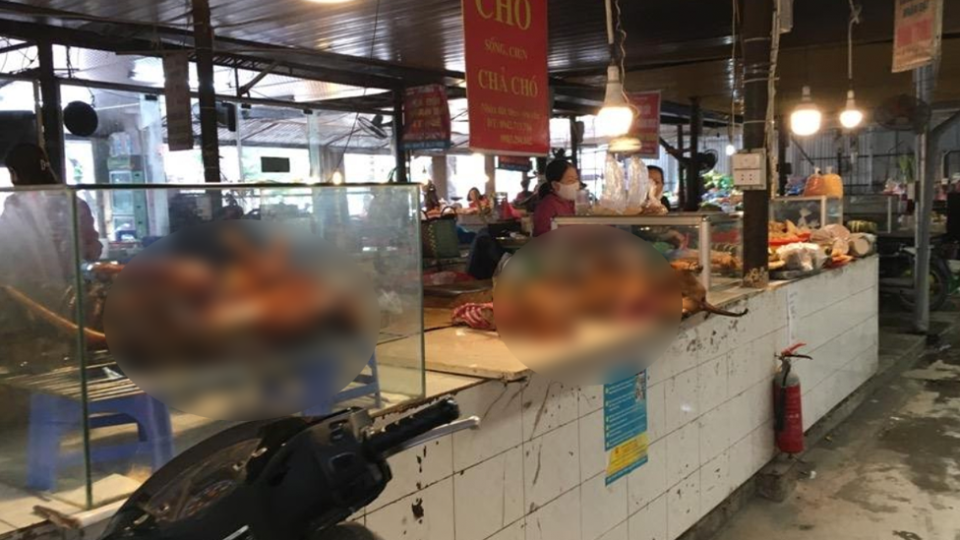Tragic story behind circles of bones photographed in city street
WARNING - DISTURBING CONTENT: Photos have emerged of piles of bones lying on a busy street corner in Vietnam.
The images show tiny paws, heads and other body parts delicately placed in circles by the roadside in the Thanh Xuan district.
The assorted bones once belonged to cats living in Hanoi - according to the researcher from animal activist group Four Paws who located them.
The piles are believed to contain the remains of almost 100 animals - many of them pets.
The bones were discovered drying in the sun, opposite a restaurant advertising dog and cat meat, as part of a two-day investigation which began on April 25.

Cat bone paste is sold by some vendors as a way to help ease the symptoms of a number of ailments including infertility and joint pain.
Black cats fetch a heftier price at 500,000 dong (AUD $33.60) a kilogram with other colours retailing at 260,000 dong (AUD $17.50) according to research from Four Paws and Change for Animals Foundation.
Despite the cat meat trade being outlawed, investigators say businesses continue to operate market stalls around the capital.

“He is proud of what he does, and treats it just like any other business,” the investigator said of one cat meat seller.
“(He) definitely did not think it is anything shady.”
Pure bred cats captured as strays disappear
Four Paws veterinarian Dr Katherine Polak estimates that one million cats are slaughtered each year in Vietnam.
In late April, one restaurant owner told researchers he had sold 40kg of cat products the previous day.
Dr Polak spoke to Yahoo News Australia from Bangkok, saying that the cat meat trade is usually more hidden than dog sellers, so finding bones brazenly drying on the street is “unusual”.

“We know that the trade involves well over a million cats, but it really doesn’t get a lot of media attention and people don’t really know about it,” she said.
“It’s really decimating cat populations in many places.
“There aren’t a lot of stray cat populations any more because they’ve all been trapped, so they’re just stealing people’s pets.”
Outside a market less than 8km away, photos show missing cat posters, pinned-up by owners desperate to be reunited with their pets.
Pet owners often go searching inside the markets for their missing pets, hoping to buy them back before they face the chopping block.

Despite disease concerns amid the coronavirus pandemic, there are signs that the dog and cat meat trade has continued to flourish in parts of Asia.
An investigator confirmed with Yahoo News Australia that while people are no longer dining in, take-away and app sales are popular.
'Bit of an unknown': Dog meat farm shutdown stalled by coronavirus restrictions
How Chinese farmers could prevent the next pandemic, experts reveal
Surveying 20 well-known wet markets and restaurant districts in Hanoi known to carry dog or cat meat, Four Paws found 80 per cent were still carrying at least one of the meats.
China however appears to be taking an active lead in phasing out the trade, with a review by the ministry of agriculture reclassifying dogs as pets and not livestock.
The draft guidelines, which have been opened to the public for consultation, listed 18 traditional livestock species - including cattle, pigs, poultry and camels.
The cities of Shenzhen and Zhuhai have banned the consumption of not only dogs but also cats, and Beijing has banned the eating of wildlife across the country.

Dog meat consumption has become increasingly unpopular in China according to Reuters, and this suggests the government’s move is in line with public opinion.
“As far as dogs are concerned, along with the progress of human civilisation and the public concern and love for animal protection, dogs have been ‘specialised’ to become companion animals, and internationally are not considered to be livestock, and they will not be regulated as livestock in China,” the Chinese government said in April.
- with Reuters
Do you have a story tip? Email: newsroomau@yahoonews.com.
You can also follow us on Facebook, Instagram and Twitter and download the Yahoo News app from the App Store or Google Play.





